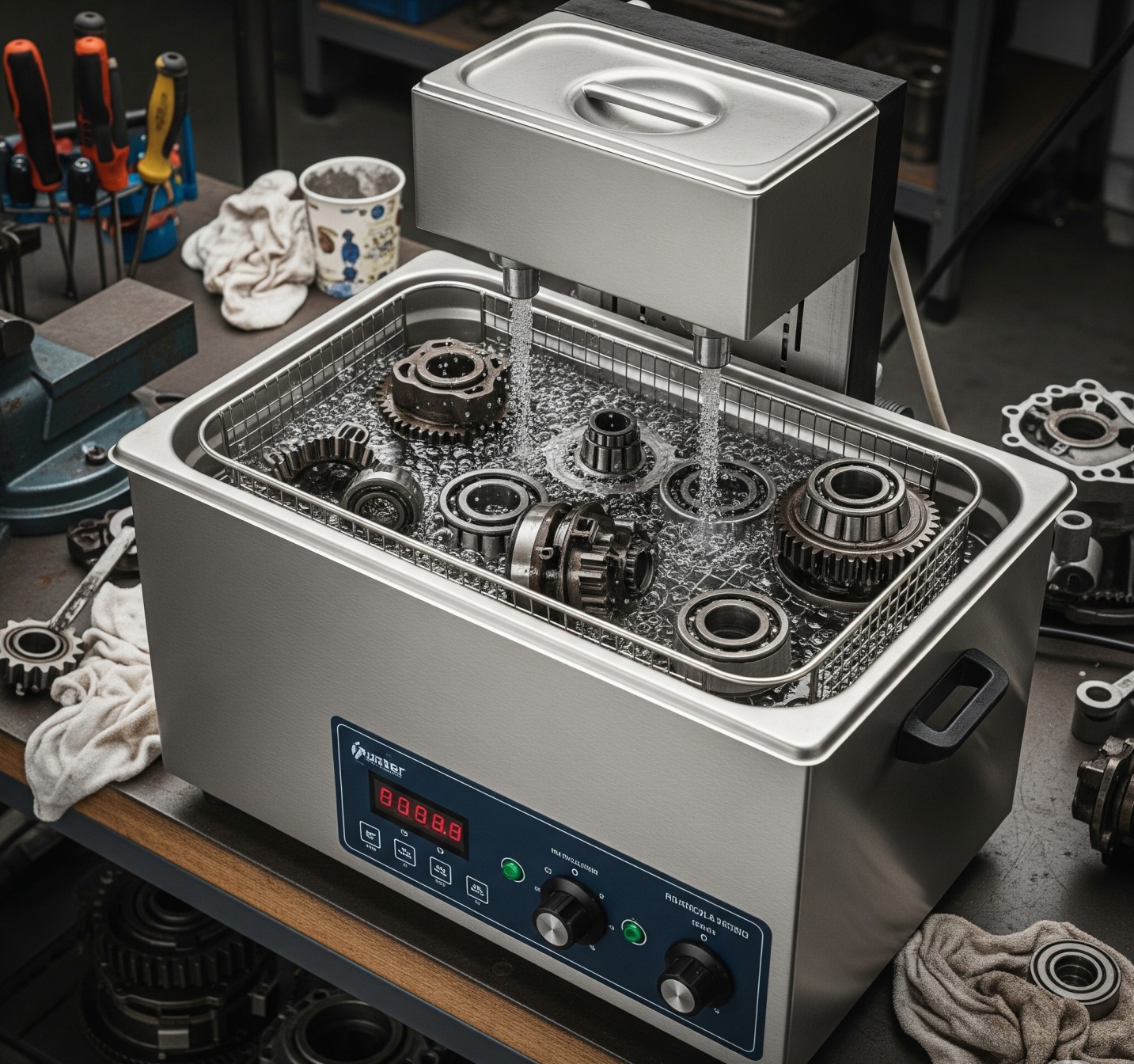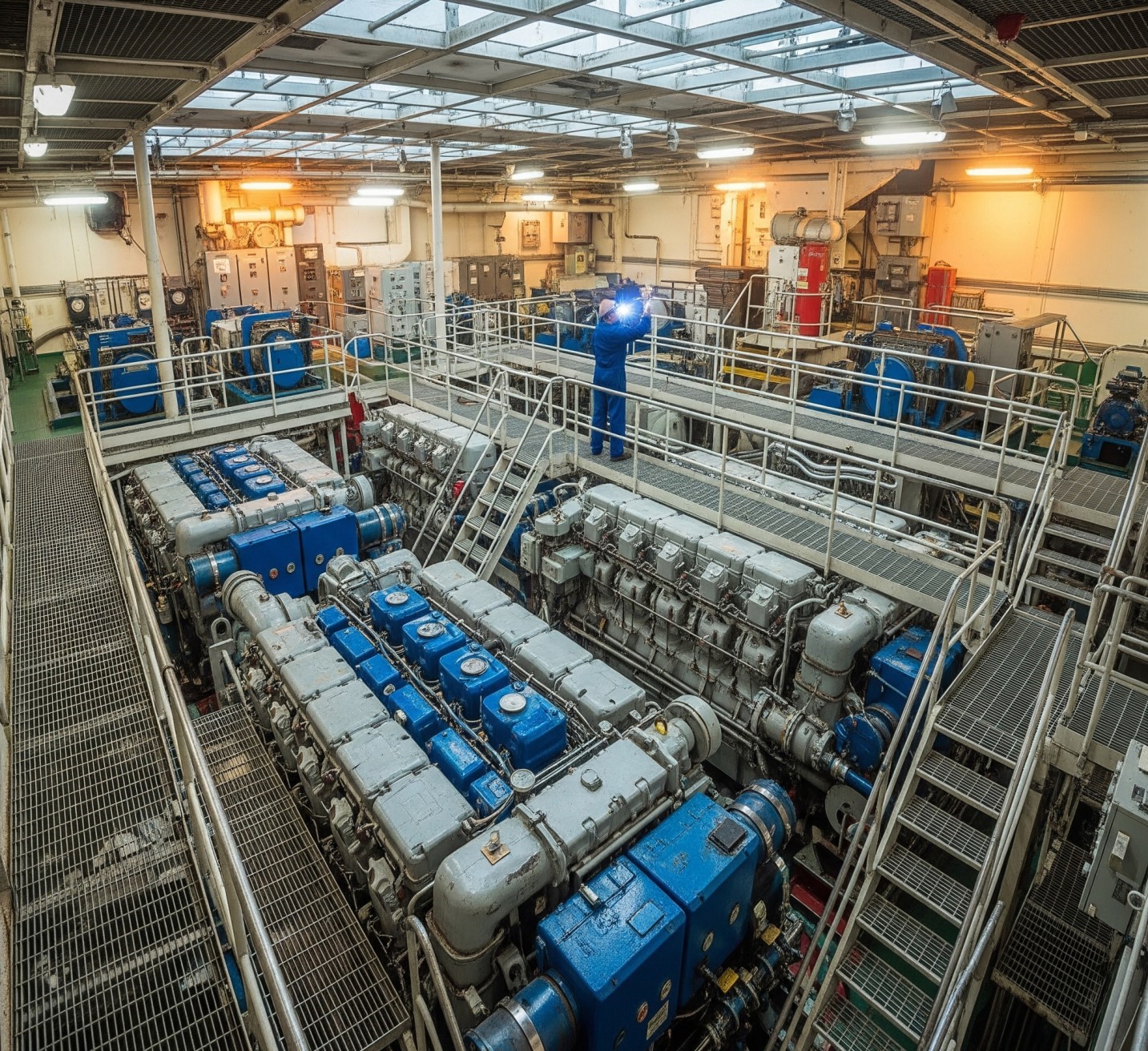
CLEAR-DIESEL FUEL AND TANK CLEANER 210 Ltr
Diesel Fuel Tank Cleaner Removes Sludge, Varnish and Other Deposits – Concentrated Formula Works In Gas Tanks, Fuel Tank & Diesel Tanks.
Tank Cleaner and Degreaser Quickly removes oil, grease, gimres, adhesive and dyes. Best results also achieved forcleaning of oil side of fuel and lube oil heat exchangers. Used as a tank cleaner or for general degreasing , cleaning and gas freeing for double bottom tanks, wing tanks, tank lines, fuel oil tanks, etc .
RXSOL-20-2001-210 is highly concentrated organic / inorganic emulsifier with powerful penetrating agents, corrosion inhibitors and surfactants.
Using-Procedure
Spraying:–
This can be beneficial as part of the initial cleaning process after the carriage of Lube oils and Lube oil additives. As soon as the tank in question has been checked empty by the attending surveyor, RXSOL-20-2001-210 should be sprayed over all surfaces which are safely reacheable.
Portable machines:–
After 45 minutes the butterworth machines should be operated for 3 x 20 minutes drops using warm 60o C, then the machines brought back to the top and a full hot wash 80 – 85 o C should be carried out for at least 6 hours.
Fixed machines:–
Wash ambient for 45 minutes followed by warm water for one cycle before increasing to hot (80oC) for 4 hours.
Injection:–
This can be carried out by injecting RXSOL-20-2001-210 into the butterworth system after the heater. A normal amount to use would be 100 – 150 liters during the initial washing cycle. Water temperature should be 60o C during the injection period then brought up to 80 – 85 o C for the full washing period.
Re-circulation:–
Possibly the best result are achieved by re-circulating a solution of RXSOL-20-2001-210 after the initial rough washing of the tank. A sufficient amount of fresh water to maintain good suction should be heated to 60 o C and approximately 420 liters of RXSOL-20-2001-210 (2 drums) added for each 500 liters of fresh water. The temperature of the mixture can be increased depending upon the melting point if the product being cleaned. The solution should be circulated for at least 4 hours and the butterworth machines operated at maximum pressure in all areas of the tank throughout this process. If a number of tanks are to be circulated, then a substantial quantity of solution can be made so that transfers can be made without delay and any small amounts lost will not affect the operation. Normally following transfer to another tank, 100 liters RXSOL-20-2001-210 is added for each 5000 liters of solution. This is called “spiking”.
Following the re-circulation process, the tank must be hot butterworthed 80-85o C for at least 6 hours.
*Use a strainer at the pumpstack when circulating any solution RXSOL-20-2001-210 is recommended for local cleaning and degreasing and may be applied by brush, hand spray, immersion, soaking or any other conventional means. Apply concentrate RXSOL-20-2001-210 over soiled area and wait for 20-30 minutes before rinsing off with water.
Soak Method:-
For heavy oil and soil Put parts to be cleaned into a bath of concentrate RXSOL-20-2001-210 and for medium to light soiling use a solution of 10-30% RXSOL-20-2001-210 in water. Parts should be soaked for at least 30 minutes before washing off with water.
Spray-Method:-
Spray concentrate RXSOL-20-2001-210 over all soiled areas. With in 15 and 30 minutes, RXSOL-20-2001-210 starts its function then rinse off by water hose. For stubborn deposits, agitation by scrubbing will assist the cleaning operation .
Cargo Tank Cleaning after Mineral Oils
Direct injection method:–
Make a solution of RXSOL-20-2001-210 between 0.1 and 2.0% i.e. one to twenty litres per ton wash water. Then use with Tank cleaning machine , Best results are obtained when water is heated to a temperature between 60 to 80°C. Slops Should be Constantly Stripped from, tank.
Recirculation method / Ship's Rocking Mottion:–
Make soln. Strength with RXSOL-20-2001-210 between 0.5 –3 % and used with Tank Cleaning machines OR fill the tank to 20-30% volume with sea water and add the RXSOL-20-2001-210 up to full dose . For better results heat the solution between 60 - 80°C.
NOTE : Dose rate and results will vary depending on amount of contamination.
Spot cleaning- RXSOL-20-2001-210 (concentrate) can be sprayed over surfaces and left for 20 - 30 minutes Finally wash down the tank surfaces with hot water between 60°C and 80°C with high pressure machine . Keep stripping tank slops and transfer to holding tank/slop tank.Cleaning of theOil side of Lube Oil Heat Exchangers Cleaning is best achieved by the recirculation method using a heated 20% solution of RXSOL-20-2001-210.
1) First of all drain off any remaining oil from Heat Exchanger.
2) Connect the discharge side of a portable pump to the lower heat exchanger connection & the suction Side of the pump to the bottom outlet of a 200 litre drum.
3) Complete the circuit by connecting the upper connection on the heat exchanger to the top of the drum.
4) Maintain the bath temperature between 60-80 0 C throughout the cleaning operation. If it is not possible to heat, the operation will need to be extended.
5) Use the pump to maintain circulation for 12 to 15 hours. When the cleaning is completed, disconnect the lower heat exchanger connection and drain out the cleaning solution.
6) Connect a fresh water supply to the upper heat exchanger connection, and rinse until the water runs clean from the lower connection. When rinsing is complete, disconnect the water supply and thoroughly drain and dry the heat exchanger
#TankCleaner_Fujairah
#TankCleaner_UAE
#TankCleaner_Mumbai
#TankCleaner_Visakhapatnam_Vizag
#TankCleaner_KandlaMundra
#TankCleaner_Chennai
#TankCleaner_Kolkata
#TANKcleaningCHEMICAL_Muscat
#DieselTankCleaner_ManufactruerSupplierDubaiSharjahAjmanMuscatOman
#TankCleaner_ShipChandler
#TankCLEANINGchemical_supplier
**Used as a multi-purpose degreaser in extremely hard cleaning conditions**
Characteristics
It is cost effective, easy to apply and use.
• High emulsification on mineral oils and petroleum based chemicals.
• Safe to use on most metal surfaces, painted surfaces and tank coatings.
• Cleans oil coolers, fuel oil pre heaters and lube oil heat exchangers.
• Removes general oil contamination from machinery and engine room.
• Economical cost effective .
**For detailed information on safety & health, Please refer to Material Safety Data Sheet & /or Product Label**
Product Properties
|
Colour |
Clear light brown liquid |
|
|
|
Density |
In g/cm3 at 15°C: 0.99 |
|
|
|
Flash Point |
(PMCC)°C: Above 62 |
|
|
|
Copmtibility |
|
|
When mixed with water, a clear emulsion is formed. |
|
Metal |
No known effect |
|
|
|
Rubber |
May swell |
|
|
|
Sythetic Rubber |
May swell |
|
|
|
Packaging |
RXSOL-20-2001-210 |
(in Litres) |
Flash Point : > None |
Tank Lining – Stainless / Zinc / Epoxy / Phenolic.
Why Cleaning of Diesel Fuel Tank is necessory?
If Cleaning and Maintenance of DIESEL TANK not maintain systematically, your engine will experience hindered combustion, reduced power output, inefficient filters, compromised fuel pumps, and increased maintenance needs. Over time, negligence can also lead to microbial growth, accelerating corrosion. Regular cleaning mitigates these risks, ensuring optimal engine operation and prolonged lifespan.
Tank Cleaner HD is powerful Solvent based Emulsifier, Effectively CLEANS oily greasy mud, Effectively works on Black Oil, Furnace Carbon deposited mess. RXSOL TANK CLEANER HD is blended with new generation penetrating solvent and Emulsifier to make cleaning easy and fast.
Tank Cleaner effectively cleans Oil Residue and Sludge from tanks which is compulsory prior to repair tank.
Tank Cleaner RXSOL-20-2001-210 is specialized for for Black oil, Oily Greasy Mud, effective on all types of SLUDGE generated by petroleum based product.
RXSOL TANK CLEANER HD is Heavy Duty Solvent Based Cleaner - With new generation FORMULA.




